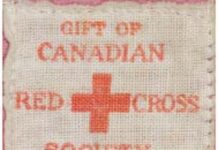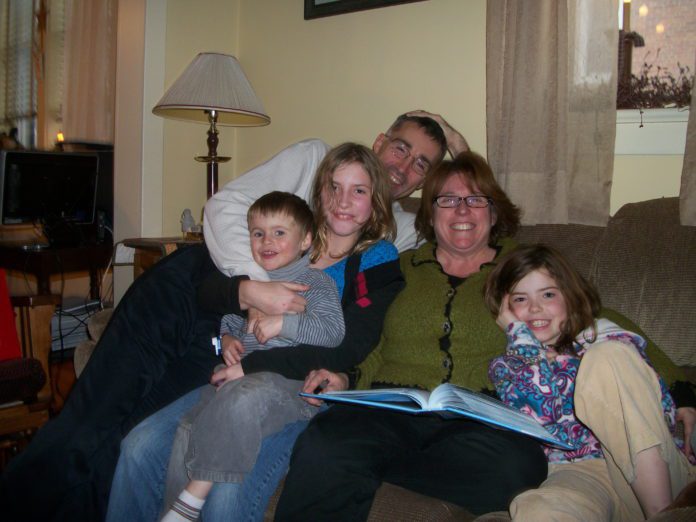A group of passionate caregivers has created an organization to advocate and raise awareness for Foetal Alcohol Spectrum Disorder (FASD). Rob and Shelley More are no strangers to the impact of FASD. All three of their adopted children have been diagnosed with the disorder after several very tumultuous years for their family. “We had two or three really rough years,” he remembers. His eldest daughter, now eighteen, was diagnosed first, after being arrested several times by the police. The couple was told by many medical professionals that her behaviour was normal, but they knew deep down that there was something more going on. “We knew something was up,” Rob says.
Their daughter was finally diagnosed with FASD three years ago by doctors at the Children’s Hospital of Eastern Ontario (CHEO). Their other daughter and their son were also diagnosed there within the last year. Rob says it is a lengthy process, needing five different specialists. There are only four places in Ontario that can diagnose FASD, and there are often long waiting lists. “There is a two-year waiting list at CHEO,” Rob says.
According to a recent study by researchers at the Centre for Addiction and Mental Health, approximately 3% of the population in Ontario are living with FASD. That is three times the number of people with autism, and amounts to approximately 300,000 people province-wide. Unfortunately, 90% of people with FASD remain undiagnosed. “Most people don’t even know they have it,” Rob says.
FASD is developed when the mother of a baby drinks alcohol while pregnant, and this stunts brain growth. “It can develop starting day one,” Rob says. “The first 21 days are crucial.” The problem is that many women don’t even know they’re pregnant for the first month, and might continue to drink, especially if the pregnancy is unplanned. Any amount or type of alcohol can affect the foetus. It is absorbed straight into the bloodstream, which goes directly to the baby. Because of this, it has even more of an impact than smoking or drugs. “There is a lot of discussion about prevention vs. support,” Rob says. “As long as alcohol exists within our culture, there will never be 100% prevention.”
Rob says the lack of awareness and diagnosis of FASD is not just an issue for individual families, but for society as a whole. The prevalence of FASD is high in homeless populations, the prison system, and suicide rates. “The numbers are alarming,” he says. “If we had the same recognition as we have for autism, our society would be radically different.”
It is important for those affected by the disease to know there is a physiological reason for their behaviour. People with FASD often have trouble managing money, have poor judgement, have difficulty regulating their emotions, and don’t learn from the consequences of their actions. Rob says that, in his experience, his daughter blamed herself for her behaviour and poor decision-making, which was actually out of her control.
While the diagnosis of FASD is crucial, support and treatment for the disorder is also key. Once Rob’s eldest daughter was diagnosed with FASD, he and his wife found that there was very little support out there for people with FASD, particularly in rural areas. The pair found three women in Ottawa who worked with people with FASD, and a support group for caregivers in Kingston, but nothing in their area, just outside Merrickville-Wolford, in Montague Township. “We got together and asked why we aren’t doing something in our own community,” Rob says. The Rural FASD Support Network was formed about six months ago and has an online presence through a blog and Facebook. On September 15, they will be holding their first caregiver support group in Smiths Falls, at the Calvary Bible Church from 10:30 am-12:30 pm. “We are inviting anyone who is interested to come,” Rob says, who is the secretary and communications person for the network. The first meeting will include a guest speaker who will talk to the group about how to recognize and work with people with FASD.
Rob says the Rural FASD Support Network is working with healthcare organizations and the government to raise awareness for FASD. They have a good relationship with the children’s mental health clinic at Kemptville District Hospital, and they are planning on speaking with the Premier about how FASD relates to many provincial ministries, including health, housing, and correctional services. “There needs to be recognition that there will always be people with this disability who need support,” Rob says. FASD Awareness Day will be observed in Ontario and around the world on September 9.






